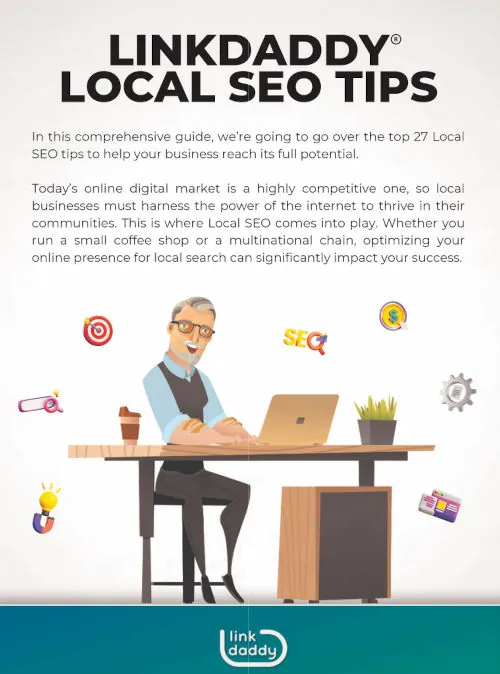
White hat SEO is a type of ethical SEO that focuses on providing quality content and improving the overall user experience on your website. This includes things like ensuring your site is easy to navigate, providing relevant and useful information to users, and using keyword research to target the right audience. White hat SEO techniques are designed to improve your website’s long-term prospects, rather than simply boosting your rankings in the short term.
While it may take longer to see results from white hat SEO methods, the rewards can be much greater. Not only will you see a sustained improvement in your SERPs rankings, but you’ll also build trust with users and search engines alike. Over time, this can result in increased traffic and conversions. Find out all you need to know about different white hat SEO techniques you can try today below.
White Hat vs. Black Hat SEO: What’s the Difference?
Before we dive into white hat SEO techniques, it’s important to understand the difference between white hat and black hat SEO. Black hat SEO is a type of unethical SEO that focuses on manipulative tactics to improve rankings in the short term. This includes things like keyword stuffing, creating doorway pages, and using link farms. While these methods may boost your rankings in the short term, they will ultimately result in penalties from search engines. This can damage your long-term prospects and reputation, making black hat SEO techniques not worth the risk.
In contrast, white hat SEO is an ethical form of optimization that focuses on providing a better overall experience for users. This includes things like creating high-quality content, doing guest positing, upgrading the user interface, and improving site speed.
Now that we’ve outlined the difference between white hat and black hat SEO, let’s take a look at some of the different techniques you can use as part of your white hat SEO strategy.
Popular White Hat SEO Techniques Today
1. Publish High-Quality Content
One of the best things you can do as part of your white hat SEO strategy is to publish high-quality content on your website. This means creating informative blog posts, helpful how-to guides, and in-depth resource pages. Not only will this help you attract organic traffic from search engines, but it will also give users a reason to keep coming back to your site.
When creating content, it’s important to focus on quality over quantity. That means taking the time to research your topic, using relevant keywords, and making sure your content is well-written and error-free. Additionally, your content should be original and offer something new that users haven’t been able to find elsewhere.
2. Optimize Your Title Tags and Meta Descriptions
Another easy way to improve your SEO is by optimizing your title tags and meta descriptions. Your title tag is the main headline for your page, while your meta descriptions is where you put all the relevant information about your page. These elements are important because they help search engines understand what your page is about and whether it’s relevant to a user’s query.
When optimizing your title tags and meta descriptions, be sure to include relevant keywords and make them as concise and attention-grabbing as possible. This will help you improve your click-through rate (CTR) from the SERPs, which can in turn lead to higher rankings.
3. Improve Your Site’s User Experience
In addition to creating high-quality content, you should also focus on improving your site’s overall user experience. This includes things like making sure your site is easy to navigate, has a clean and modern design, and loads quickly. This makes your site visitors stay longer in your website and visit more pages, which helps reduce your bounce rate.
4. Build High-Quality Backlinks
Backlinks are links from other websites to your website. They help improve your SEO by signaling to search engines that your site is popular and authoritative. The more high-quality backlinks you have, the better your chances of ranking higher in the SERPs.
When building backlinks, it’s important to focus on quality over quantity. That means getting links from high-authority sites that are relevant to your industry. You can also try guest posting, broken link building, and other link-building tactics to get high-quality backlinks to your site.

5. Monitor Your Keyword Rankings
Keywords are the bread and butter of SEO. They’re the terms and phrases users type into search engines when they’re looking for information on a particular topic. And if you want to rank higher in the SERPs, you need to target the right keywords with your SEO strategy.
To find the best keywords for your website, you can use a keyword research tool like Google Keyword Planner or Moz Keyword Explorer. Once you have a list of relevant keywords, be sure to track your rankings for these terms over time so you can see how your efforts are paying off.
6. Use Google Search Console
Google Search Console is a free tool that gives you insights into how your website is performing in the SERPs. It also helps you diagnose and fix any issues regarding low-performing pages, incorrect structured data, and more.
If you want to improve your SEO, be sure to sign up for Google Search Console and use it to monitor your site’s progress.
7. Conduct an SEO Audit
An SEO audit is a comprehensive analysis of your website to identify any potential issues that could be holding back your rankings in the SERPs. This includes things like checking for broken links, duplicate content, missing title tags, and more.
You can conduct an SEO audit yourself or hire an agency to do it for you. Either way, it’s a valuable exercise that can help you improve your website’s overall SEO health.
8. Keep Your Site Updated
Another important thing to do as part of your SEO campaign is to constantly update your website with new and relevant content. This helps keep your site fresh and relevant, which is something search engines look for when ranking websites.
So if you want to improve your SEO, be sure to add new blog posts, infographics, videos, and other types of content on a regular basis.
9. Promote Your Content
Once you’ve created high-quality content, the next step is to promote it to get as many people to see it as possible. There are a number of ways to do this, including social media marketing, email marketing, and paid advertising.
The best way to promote your content will vary depending on your industry and audience. But if you want to get the most out of your content promotion efforts, it’s best to practice a mix of different marketing strategies.
10. Measure Your Results
Last but not least, it’s important to measure your SEO progress to see if your efforts are actually paying off. This can be done using a number of different tools, including Google Analytics and Searchmetrics.
By measuring your results, you can get a better idea of what’s working and what’s not, which can help you adjust your SEO strategy accordingly.
These are just some of the things you can do to improve your website’s SEO. But keep in mind that SEO is an ever-evolving landscape, so it’s important to stay up-to-date on the latest trends and algorithms changes.
Current SEO Trends and Algorithm Changes
No matter how many white hat techniques you have up your sleeve, you can’t keep your website ranking high in the SERPs if you don’t stay up-to-date on the latest SEO trends and algorithm changes. Search engines are constantly evolving, which means your SEO strategy needs to evolve as well.
Here are some of the latest SEO trends and algorithm changes you need to be aware of:
1. Google’s Mobile-First Indexing
Google recently announced that it will be rolling out mobile-first indexing for all websites. This means that Google will now use the mobile version of your website for indexing and ranking purposes.
If you want your website to rank well in the SERPs, you need to make sure your site is mobile-friendly. That means making the user interface and experience as mobile-friendly as possible.
2. Voice Search Optimization
Another big SEO trend is voice search optimization. With the rise of digital assistants like Siri, Alexa, and Google Home, more and more people are using voice search to find information online.
If you want to optimize your site for voice search, you need to make sure your content is concise and easy to understand. You also need to use natural language keywords and phrases.
3. RankBrain
Google’s RankBrain is a machine learning algorithm that’s designed to help Google better understand user queries. It does this by associating queries with similar meaning and intent.
To optimize your website for RankBrain, you need to make sure your content is optimized with the right set of keywords and phrases. You also need to make sure your content is well-written and easy to understand.
4. AMP
AMP, or Accelerated Mobile Pages, is a Google project that’s designed to help improve the loading speed of mobile pages. AMP pages are stripped down versions of regular web pages that load faster on mobile devices.
If you want your website to be AMP-friendly, you need to make sure your pages are as lightweight as possible. You also need to use AMP-specific HTML tags.

5. Structured Data
Structured data is a way of organizing information on your website so that search engines can easily understand it. It’s important to use structured data if you want to create data-driven content, such as a recipe or product page.
To add structured data to your website, you need to use specific HTML tags and markups. You can find more information about this in Google’s Structured Data documentation.
SEO is an ever-evolving landscape, so it’s important to stay up-to-date on the latest trends and algorithms changes.
How to Keep Up With Changing SEO Trends

There are plenty of communities and authorities you can turn to in order to stay up-to-date on changing SEO trends:
1. Search Engine Land
Search Engine Land is one of the most popular search engine news websites. It’s a great resource for keeping up with the latest search engine news and algorithm changes.
2. Moz
Moz is another popular authority on all things SEO. They have a great blog that’s regularly updated with the latest SEO news and tips.
3. Google Webmaster Central Blog
The Google Webmaster Central Blog is a great resource for staying up-to-date on the latest Google algorithm changes and announcements.
4. /r/bigseo
/r/bigseo is a subreddit dedicated to all things related to SEO. Whether you need information for your next project or just want to stay up-to-date on the latest industry news, this is a great place to start.
5. Search Engine Roundtable
Search Engine Roundtable is a popular blog that covers all aspects of search engine news. If you want to stay up-to-date on the latest SEO trends, this is a great resource.
Keeping up with changing SEO trends can be a challenge, but it’s important if you want your website to rank well in the SERPs. By using the resources above, you can easily stay up-to-date on the latest SEO news and algorithm changes.
The Bottom Line
SEO is an ever-changing landscape, so it’s important to stay up-to-date on the latest trends and algorithm changes. There are plenty of resources you can use to stay informed, including Search Engine Land, Moz, and Google Webmaster Central Blog. By staying up-to-date on changing SEO trends, you can ensure your website is always ranking well in the SERPs.
And remember, if you ever find yourself overwhelmed with SEO, know that you can always reach out to an SEO agency for help. They will have all the tools and experience necessary to help you rank well in the SERPs.









